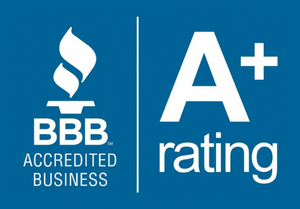1. What is the FLSA?
The Fair Labor Standards Act or FLSA is a federal law that establishes minimum wage, overtime pay, recordkeeping, and child labor standards for both full-time and part-time workers. It states that most employees must be paid time and one-half for all “hours worked” beyond 40 hours in a workweek, which it defines as a 7-day period.
2. What is considered overtime?
Overtime consists of any hours over 40 an employee works in one workweek (defined as a seven-day period). When paying overtime, employers must pay at least one and one-half times the worker’s regular hourly rate. For example, if you make $15.00 per hour, then you should be paid $20.00 for each hour you work past 40 hours in a workweek. Regardless of whether you are classified as salaried,hourly or labeled as an independent contractor, you may be eligible for overtime if you work more than 40 hours. The law only exempts a small group of high-level employees from overtime requirements, which most workers don’t come close to qualifying for.
Additionally, employers must also calculate your overtime pay at the correct rate of pay. To do this, in many instances that must consider all of the compensation or remuneration that you received. This means that any non-discretionary bonuses, completion or safety bonuses, stage bonuses, premium pay or additional compensation must be included in the calculation. If you believe your employer miscalculated your rate of pay, please call us today for a free evaluation
3. How long do I have to bring a wage claim?
The law typically allows employees to go three years back in time to recover their unpaid wages and penalties from both current and former employers. Some states like California (4 years) and New York (6 years) allow employees to go back even further. It is very important that you act quickly if you believe you have a potential wage claim. The longer you wait, the more of your unpaid wages you potentially give up.
4. How do I know if I have an FLSA wage claim?
Contact Dave Johnson Investigations for a free and 100% confidential consultation.
5. I get Comp Time instead of being paid for overtime. Is this allowed?
Giving “comp time” (or compensatory time) in lieu of actual wages for overtime hours is not legal in most circumstances. A government or public sector employer may pay some overtime with comp time, but private employers cannot. If your employer gives you comp time instead of actual wages for overtime, you may have an FLSA claim and you should contact Dave Johnson Investigations
6. Do I have to have proof of my unpaid wages or hours worked?
In most instances, the employer—not the employee—is required to maintain proper and accurate records. While it is helpful if you have documentation to support your claim, the law does not require it and employees who don’t have proof are permitted to give a reasonable estimate of the hours that they worked, their duties and/or their unpaid wages.
7. How do I know if I am misclassified?
Employers commonly misclassify workers as managers, contractors, salaried (exempt employees), independent contractors or day rate employees when their job status, responsibilities and daily tasks are the same as those of hourly workers eligible for overtime. Because the wage and hour laws protect workers from being improperly classified, it is highly likely that unless you fit within some very narrow exceptions to the overtime rules, you are probably owed overtime compensation.
8. I got a severance agreement and/or signed a waiver saying I would not sue the company. Do I still have any rights?
Employers cannot ask employees to sign away their rights to minimum wages and overtime pay, even if they signed waiver saying otherwise. Only waivers supervised by the Department of Labor or obtained in a private lawsuit can eliminate your rights.
9. What actual financial costs or risks are there for me to bring an FLSA case?
We work on a contingency fee basis, meaning there are no upfront expenses. Attorneys’ fees and expenses are only recovered if your case is successful; and, even then these expenses are taken out of your recovery, not paid out of pocket.
10. Can my employer fire me if I bring a claim against them for unpaid wages?
Your employer cannot legally fire you for suing them without potentially incurring a substantial penalty. The FLSA makes it illegal to discriminate or discharge an employee because they file a complaint under the Act or testify in an FLSA proceeding. An employer who retaliates or discriminates an employee in violation of this statute is potentially subject to fines and prosecution. Employees have previously been awarded punitive damages against retaliatory employers. Additionally, employers have been found in violation for retaliation when they “blacklisted” workers who made FLSA claims, refused to hire applicants who had made FLSA claims against previous employers, reduced job responsibilities, assigned unpopular job duties or shifts, gave negative performance reviews, and/or declined to provide standard raises.
11. What could I get if I win?
Successful FLSA claimants may be entitled to back pay for all unpaid overtime or wages usually beginning three years before the complaint is filed. Generally, they are also entitled to double the amount of back pay. The FLSA also requires the employer to reimburse court expenses and pay attorneys’ fees. Additionally, if you are one of the first individuals to come forward with allegations of widespread wage and hour violations, you might also be eligible for an incentive award or service payment in addition to your unpaid wages.

